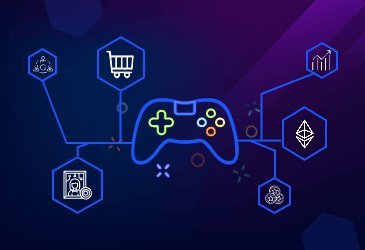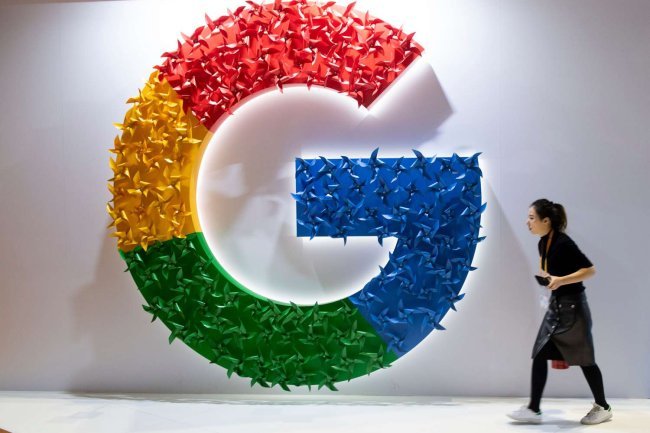Major Game Developers Utilize Web3 and AI to Revolutionize Player Engagement in Gaming
Major game developers are embracing Web3 and artificial intelligence to transform player engagement in gaming. Technologies like blockchain provide players with true ownership of in-game assets, while AI enables personalized storytelling and intelligent character interactions. This evolution shifts players from passive consumers to active stakeholders, fostering deeper community involvement and changing the dynamics of digital game economies. As developers explore these innovations, the gaming experience promises to become more immersive and interconnected, reshaping the future of the industry.

Major Game Developers Utilize Web3 and AI to Revolutionize Player Engagement in Gaming
The gaming industry is undergoing a profound transformation as leading developers adopt Web3 and artificial intelligence to create more engaging and community-oriented gaming experiences. Players are shifting from being passive consumers to active participants, and both technologies are playing crucial roles in redefining player interactions and ownership in virtual worlds. Recent reports indicate that firms like Ubisoft are at the forefront of this movement, harnessing blockchain and AI to enhance gameplay and foster player-driven content.
Transformative Technologies in Gaming
A recent report from Forbes highlights the increasing investment by game developers in blockchain and AI technologies. These innovations are designed to create personalized gameplay experiences and enable economic participation within player-led communities. Game studios are leveraging blockchain to provide true ownership of in-game items, allowing players to trade and derive real value from their assets.
Ubisoft is a notable player in this evolution, integrating blockchain technology to give gamers control over their digital items. This shift represents a significant change in an industry that has historically restricted asset ownership to developers. The incorporation of AI further enhances player experiences by creating tailored in-game events and environments based on individual behaviors, moving away from one-size-fits-all narratives.
New Economic Models for Players
The advent of Web3 has fundamentally altered digital game economies. Players can now fully own their in-game assets, including the ability to transfer, sell, or rent them on secondary markets. Ubisoft has already introduced NFTs into several projects, reshaping in-game economies. As a result, players have become economic actors, generating real financial value from their time spent in virtual environments.
AI enhances these new player-driven economies by enabling non-player characters to react intelligently to player behavior, making interactions more dynamic. Players are now directly involved in creating and evolving game worlds, leading to greater investment in the gaming universe.
Personalized Gaming Experiences Powered by AI
Artificial intelligence is transforming game design by allowing developers to craft personalized storytelling that responds directly to player choices. This dynamic approach creates adaptive narratives that provide unique experiences with each playthrough. AI's capabilities extend to procedural content generation, resulting in expansive, interactive worlds that feel alive and responsive.
Characters within these games are no longer limited to scripted actions; they now adapt based on player interactions, enriching the overall gaming experience. The combination of AI and blockchain technologies fosters deeper engagement among players as they contribute to shaping game environments and benefit from their involvement.
Bridging Virtual and Real Worlds through Web3
Web3 is also redefining the concept of ownership by bridging the gap between virtual assets and real-world value. Blockchain technology ensures that in-game items are verifiably scarce and authentic, allowing players to transfer their assets across different games. This interoperability creates a more integrated gaming universe where players can utilize the same items across multiple titles, enhancing engagement and fostering a cohesive gaming experience.
Innovations stemming from these technologies are poised to revolutionize esports and content creation. Smart contracts could streamline the management of tournament prize pools, ensuring transparent and instantaneous payments, which would build trust and accountability in competitive gaming.
Community-Centric Game Development
The integration of blockchain also promotes community-centric development in gaming. Decentralized ownership enables players to contribute to decision-making regarding updates and features in games. This shift empowers players to become active stakeholders, fostering loyalty and enhancing the connection between developers and the gaming community.
The democratization of game development is likely to influence the future of the industry significantly. As developers embrace player engagement, AI and Web3 technologies are set to reshape the way games are created and experienced.
Conclusion: The Future of Player Engagement
The integration of AI and Web3 into gaming represents a fundamental shift in how game developers approach player engagement. With these technologies, players gain ownership, control, and creative input in their gaming experiences, leading to more immersive interactions. The symbiosis between AI and blockchain will continue to revolutionize not only gaming but also other industries, creating new opportunities for engagement and collaboration in the digital space. Developers are striving to create living, player-centric universes that promise endless possibilities for engagement.
Click Here to Visit
What's Your Reaction?
















